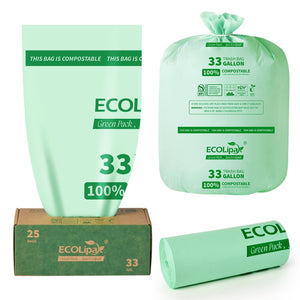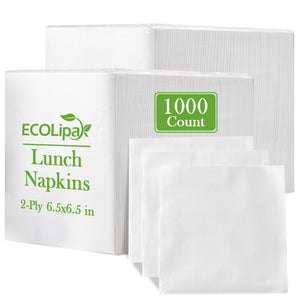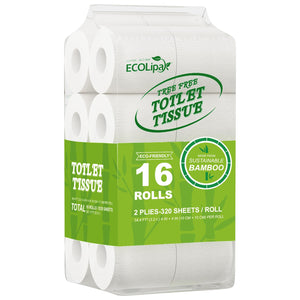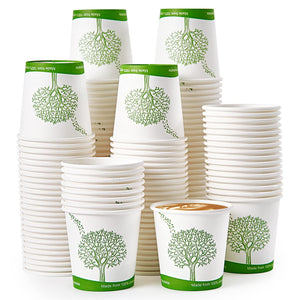Have you ever wondered what really happens when you toss those biodegradeable garbage bags? The best way to dispose of biodegradeable garbage bags is to use compostable trash bags and ensure they end up in the proper composting environment. When you choose compostable options like Ecolipak’s biodegradeable garbage bags, you help the planet in small but powerful ways. These bags are made from 100% plant-based materials and won’t contribute to microplastic pollution. By choosing biodegradeable garbage bags, you support sustainable waste management and help protect green spaces—one simple choice at a time.
Key Takeaways
-
Choose compostable bags over biodegradable ones. Compostable bags break down completely in composting environments, benefiting the soil.
-
Look for trusted certifications like ASTM D6400 and BPI. These labels ensure the bags meet strict standards for safe decomposition.
-
Follow proper disposal steps for compostable bags. Shred them, mix with organic waste, and maintain moisture in your compost pile for effective breakdown.
-
Check local guidelines before disposing of compostable bags. Regulations vary by city, and knowing the rules helps avoid contamination and fines.
-
Avoid common mistakes like mixing compostable bags with recycling. Proper disposal ensures your efforts contribute positively to the environment.
Identify Biodegradable Garbage Bags
Compostable vs. Biodegradable
You might see a lot of green labels at the store, but not all bags break down the same way. Compostable bags and biodegradable garbage bags sound similar, but they work differently. Compostable bags break down fully in a compost environment, turning into safe, natural materials that help the soil. Biodegradable bags can break down in many places, but they might leave behind tiny bits of plastic or take a very long time to disappear.
Here’s a quick look at how they compare:
|
Type of Bag |
Decomposition Environment |
Decomposition Timeframe |
|---|---|---|
|
Biodegradable Bags |
Various environments, including landfills |
Varies widely; can take months to over a hundred years |
|
Compostable Bags |
Controlled conditions (humidity and temperature) |
Decomposes completely within a known time limit |
If you want to make a real difference, choose compostable trash bags. These bags break down quickly and safely when you use proper disposal methods, like adding them to a compost pile or sending them to a composting facility. Compostable bags help keep your home and the planet cleaner.
Certifications to Look For
Not all green bags are created equal. When you shop for compostable bags, look for trusted certifications. These labels show that the bags meet strict standards for breaking down safely and completely.
-
ASTM D6400: This means the bag will break down within 180 days and leave behind only safe, organic material.
-
EN 13432: Bags with this label disintegrate within 12 weeks and fully biodegrade in six months.
-
BPI Certification: This badge proves the bag meets the ASTM D6400 standard.
-
TUV OK Compost: This shows the bag will break down in an industrial composting plant.
-
OK compost HOME: This label means the bag will compost in your backyard pile.
-
Seedling: This mark follows the EN 13432 rules for industrial composting.
Tip: Always check for these certifications before you buy. Certified compostable bags, like those from Ecolipak, give you peace of mind that you’re making a healthy choice for your family and the earth.
Proper Disposal Steps
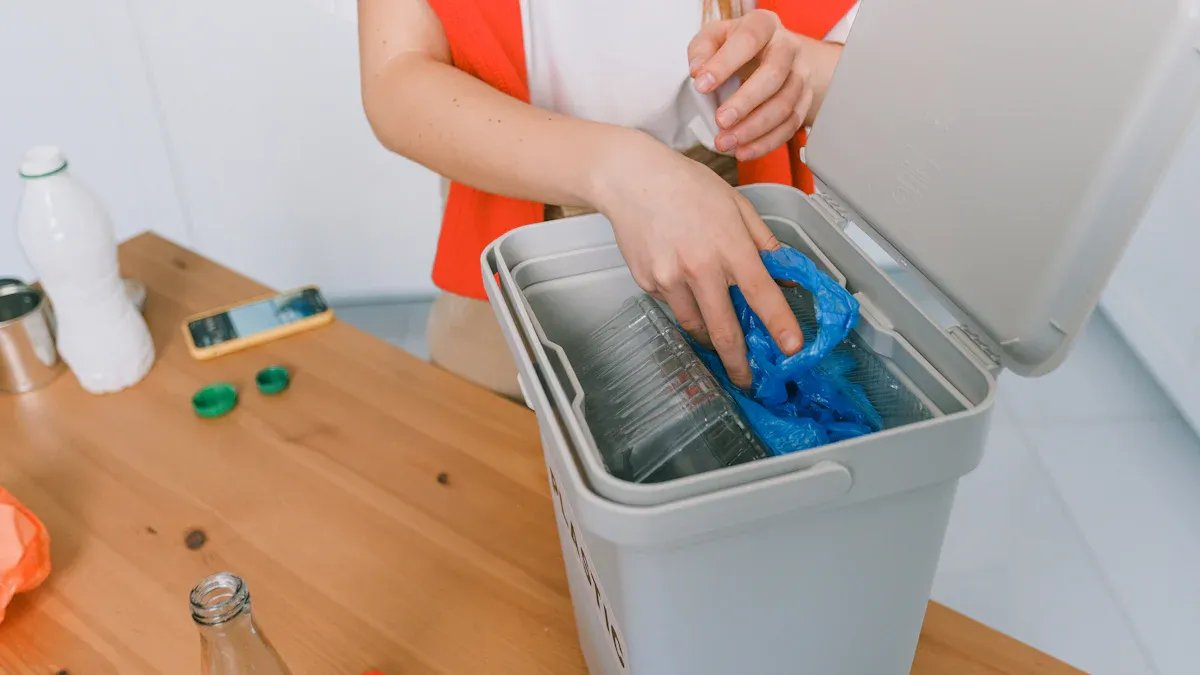
When you want to make a real difference for the planet, understanding compostable trash bags and their proper disposal is key. Let’s walk through the steps for getting the most out of your Ecolipak compostable bags and making sure they help, not harm, the environment.
Home Composting
Home composting is a great way to handle compostable trash bags if you have a backyard compost pile. You can turn kitchen scraps and yard waste into rich soil, and your compostable bags can join the mix. Here’s how you can prepare compostable bags before disposal and make sure they break down the right way:
-
Check the label on your compostable trash bags. Look for “Home Compostable” or similar wording. Ecolipak compostable trash bags are a perfect example of certified compostable bags that work well in home compost.
-
Fill your bag with organic waste like fruit peels, veggie scraps, or coffee grounds. Avoid putting in plastics or metals.
-
Tear or shred the bag into smaller pieces. This helps the compostable bag break down faster in your home compost pile.
-
Add the bag and its contents to your compost pile. Mix it with other compostables, balancing “greens” (like food scraps) and “browns” (like dry leaves).
-
Turn your compost regularly. This keeps air moving and speeds up the breakdown of your compostable bags.
-
Keep your compost moist but not soggy. The right moisture helps everything decompose.
-
Be patient. Certified compostable trash bags usually break down in home compost within 180 to 360 days, depending on how often you turn the pile and the temperature.
Tip: If you want to see faster results, cut the bag into smaller pieces before adding it to your home compost.
Industrial Composting Facilities
Not everyone has space for home composting. Industrial compost facilities offer another eco-friendly way to handle compostable trash bags. These places use high heat and special equipment to break down compostable packaging quickly and safely.
Here’s what happens when you send your compostable bags to an industrial compost facility:
-
Workers shred and grind the compostable bags into small pieces. This gives microbes more surface area to work on.
-
The shredded material goes into a controlled composting system. Temperatures reach 55–70°C, and workers monitor moisture and oxygen levels.
-
Microorganisms break down the compostable bags, turning them into water, carbon dioxide, and rich compost.
-
The compost cures and matures, becoming a soil conditioner that helps gardens and farms.
If your city offers green bins or organics collection, you can toss your Ecolipak compostable trash bags in there. Always check your local rules to make sure compostable bags are accepted. Some areas only take food scraps, while others welcome compostable bags.
What Not to Do
You want your efforts to count, so avoid these common mistakes when disposing of compostable bags:
-
Never put compostable trash bags in the recycling bin. Compostable packaging can contaminate recycling streams, making it harder to recycle regular plastics.
-
Don’t toss compostable bags in the landfill. In landfills, compostable bags can’t break down properly and may release greenhouse gases instead of turning into compost.
-
Avoid mixing non-compostable items like plastic or metal with your compostable bags. This can ruin the compost and make it unsafe for gardens.
-
If you’re not sure about your local composting options, read the label on your bag. Some bags are only for industrial compost, while others work in home compost.
-
Try not to use compostable bags for non-organic waste. Stick to food scraps and yard waste for the best results.
Note: Proper use of compostable trash bags means following the right steps for compostable bag disposal. Always check your community’s guidelines and keep non-compostables out of your compost pile.
If you live in an area without access to industrial compost, you still have options. Here’s a quick table to help you decide what to do:
|
Step |
Description |
|---|---|
|
Step 1 |
Read the label to check if the bag is home or commercial compostable. |
|
Step 2 |
Check local composting options to see if compostable bags are accepted. |
|
Step 3 |
Avoid mixing bags with recycling or non-organic waste. |
|
Step 4 |
Try a home compost test by cutting the bag and placing it in an active compost pile. |
|
Step 5 |
Use alternatives like reusable containers to minimize compostable bag use. |
By following these steps, you help keep compostable trash bags out of landfills and recycling bins. You also make sure your compostable bags turn into something good for the earth. Ecolipak compostable trash bags make it easy to do the right thing for your family and the planet.
Local Guidelines for Compostable Trash Bags
Check Community Rules
Every city has its own rules for disposing of compostable bags. You might think you can toss all compostable trash bags into the green bin, but that’s not always true. Some places accept compostable plastics, while others do not. Before you start disposing of compostable bags, check your local waste management website or call your city’s recycling hotline. This simple step helps you avoid mistakes and keeps your compost clean.
Here’s a quick look at how different cities handle compostable bags:
|
City |
Regulation Description |
|---|---|
|
Pasadena |
Food waste must be bagged for separation; compostable bags may not be accepted at the landfill. |
|
Boulder |
Compostable products should be placed in the trash to prevent contamination of compost. |
Many communities have rules like these:
-
Compostable plastics may go in green containers if the facility accepts them.
-
Some cities limit or even ban compostable plastics.
-
Compostable products are not recyclable and should never go in the recycling bin.
If you don’t follow the rules, you could face fines. Some cities charge $100 for a first violation, and the penalty can go up to $10,000 per day for major violations. That’s a big reason to double-check before you toss your biodegradeable garbage bags.
Organics and Green Bins
When your city allows compostable bags in the green bin, you need to know what else can go in there. Most programs want you to keep things simple and clean. Only put organic waste and certified compostable bags in the bin. This helps the compost process work better and keeps the finished compost safe for gardens.
Here’s what you can usually add to your green bin:
|
Acceptable Organic Waste Types |
Description |
|---|---|
|
Food Scraps |
|
|
Food-Soiled Paper |
Such as paper napkins and filters. |
|
Yard Trimmings |
Includes plant clippings and untreated wood waste. |
-
Food scraps (like apple cores, banana peels, or leftovers)
-
Food-soiled paper (napkins, coffee filters)
-
Yard trimmings (grass, leaves, small branches)
Always place these items loosely in the bin. Don’t use regular plastic bags. Compostable bags, like Ecolipak’s, are designed for this purpose and break down with the rest of your organic waste.
Clear local guidelines make a big difference. When you know the steps for proper disposal, you help your community recycle and compost more. You also protect the environment and keep your neighborhood healthy. If you’re ever unsure, ask your city or check their website. Taking a few extra minutes can help everyone enjoy a cleaner, greener world.
Avoiding Common Mistakes
Contamination Risks
When you want to help the planet, you need to watch out for contamination risks with compostable bags. Many people get confused about where to toss biodegradeable garbage bags. This confusion often leads to mistakes that can harm the composting process. Here are some common risks you should know:
-
Compostable plastics can cause problems if you mix them with non-biodegradable items. Even a small amount of plastic or metal can ruin a whole batch of compost.
-
Some compostable foodware may contain chemicals like PFAS, which can sneak into the compost and affect soil health.
-
Not all bags labeled as compostable actually break down the right way. Products that look like certified compostable bags may not meet the same standards, leading to contamination in composting streams.
-
Many people think all bioplastics are compostable, but that’s not true. This mistake can make composting facilities reject even certified compostable trash bags.
You can avoid these risks by following the proper disposal steps and always checking for trusted certifications. Ecolipak Compostable Trash Bags have clear labels and meet strict standards, so you know you’re making a safe choice for your home and the environment.
Misconceptions About Biodegradable Bags
You might hear a lot of myths about compostable bags and biodegradable plastics. Let’s clear up some of the most common ones:
-
Biodegradable plastics do not decompose anywhere. They need special conditions, often found only in industrial composting facilities.
-
Compostable and biodegradable plastics are not the same. Compostable bags break down into safe, non-toxic materials, while some biodegradable plastics can leave behind residues.
-
Not all bioplastics are made from plants. Some come from other materials, so always check the label.
-
Biodegradable plastics are not always the best environmental choice. The right bag depends on how you plan to use and dispose of it.
-
Many people believe biodegradable plastics can go in recycling bins, but they need separate processing.
A recent survey showed that most people struggle to identify compostable packaging and often put it in the wrong bin. Even with extra information, habits are hard to change. That’s why using certified compostable trash bags like Ecolipak makes compostable bag disposal easier and safer for everyone.
Tip: Always double-check your local guidelines before disposing of compostable bags. When you use Ecolipak Compostable Trash Bags, you help keep compost clean and support a healthier planet.
|
Brand |
Certifications |
Material Composition |
Durability |
Use Cases |
|---|---|---|---|---|
|
Ecolipak |
BPI, OK COMPOST |
Corn-based |
High |
Kitchen, outdoor, general waste |
|
HECTOLIFE |
Similar certifications |
Similar materials |
Varies |
General waste |
|
GreFusion |
Similar certifications |
Similar materials |
Varies |
General waste |
You can make a real difference by following a few simple steps for disposing of compostable bags. Always use compostable trash bags for your kitchen waste and check local regulations before tossing them. Compostable bags break down quickly, help reduce waste, and protect wildlife. Unlike traditional plastic, biodegradeable garbage bags made from renewable resources support a cleaner planet. When you choose Ecolipak, you join a community that cares. Share your tips or stories about compostable choices—your actions inspire others!
FAQ
What makes Ecolipak Compostable Trash Bags different from regular plastic bags?
Ecolipak bags use plant-based materials. They break down in compost, not landfills. You help the planet by choosing them. Regular plastic bags can last for hundreds of years and harm wildlife.
Can I use Ecolipak compostable bags for all types of trash?
You should use these bags for food scraps, yard waste, and other compostable items. Avoid putting glass, metal, or regular plastic in them. This keeps your compost clean and safe.
How long do Ecolipak compostable bags take to break down?
In a composting environment, these bags break down in three to six months. Home composting may take a bit longer. Industrial composting works faster.
Are Ecolipak compostable bags safe for my family and pets?
Yes! Ecolipak bags are BPA-free and made from safe, natural materials. You can use them in your kitchen without worry.
What should I do if my city does not accept compostable bags?
Check with your local waste service for options. You can try home composting or look for drop-off sites. If those are not available, use the bags for yard waste or food scraps to reduce landfill waste.




